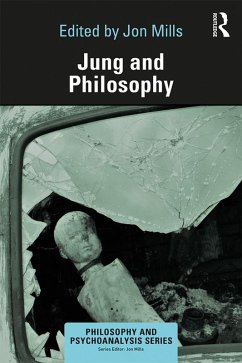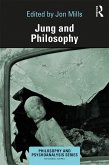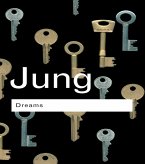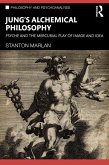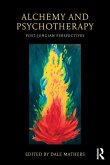For the first time we may observe philosophers attempting to unpack the philosophical consequences of Jung's thought applied to many traditional topics covered in the humanities and the social sciences. Given that Jung has not been historically taken up by philosophers, critiqued, nor applied to contemporary theories of mind, culture, and human nature, this is the first book of its kind. It is argued that a new generation of research in analytical psychology can benefit from philosophical scrutiny and theoretical fortification.
Jung and Philosophy will be of interest to psychoanalysts, philosophers, cultural theorists, religious scholars, and the disciplines of depth psychology and post-Jungian studies.
Dieser Download kann aus rechtlichen Gründen nur mit Rechnungsadresse in A, B, BG, CY, CZ, D, DK, EW, E, FIN, F, GR, HR, H, IRL, I, LT, L, LR, M, NL, PL, P, R, S, SLO, SK ausgeliefert werden.
"Most studies of Jung have been dismissive of his philosophical errors and mischaracterizations, which makes this collection of essays especially fresh and exciting. Mills has brought together an outstanding group of scholars who have explored, developed, and interpreted Jung's concepts in new directions with philosophical and psychological rigor. This is essential reading for those who want to know what is currently being thought regarding the foundations of Jungian thought."-Roger Brooke, Duquesne University, USA; author of Jung and Phenomenology: Classic Edition
"A new appreciation of Jung's relevance for philosophy and of philosophy's relevance for Jungian psychology is moving through the field of analytical psychology, and it is long overdue. This book breaks new ground by showing how deeply philosophical Jung's psychology was, and still is. It is replete with concepts that should resonate with many people working in philosophy-from Jung's prospective understanding of myth, to his insistence on the psychological meaning of alchemy. At the same time, Mills' book raises difficult philosophical questions in the interpretation of Jung, for example, Jung's refusal to draw metaphysical conclusions, allied with his not-so-concealed Kantian commitments and somewhat indefensible scientism. Let us hope that at long last philosophers and students of philosophy will shed the tired prejudices against Jungian psychology and look and see what a treasure trove of ideas Jung unearthed. Jungian psychology will only benefit from a sharpened sense of the philosophical problems and questions raised by Jungian theories. A welcome contribution to a growing field, which sets the bar high for the intellectual re-appraisal of Jungian psychology."-Sean J. McGrath, Memorial University, Canada; author of The Dark Ground of Spirit: Schelling and the Unconscious

